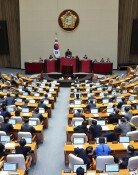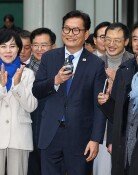How Japan won rare earths trade dispute over China
How Japan won rare earths trade dispute over China
Posted July. 27, 2019 07:19,
Updated July. 27, 2019 07:19

The captain of a Chinese fishing boat was arrested by the Japanese coast guard in the Senkaku Islands (Diaoyu in Chinese) on September 7, 2010, before the export of Chinese rare earth elements was delayed for an unknown reason. Japan, which regarded the export delay as retaliation for the Chinese captain’s arrest, made an appeal, saying that China violated the World Trade Organization rules. China, however, refuted the appeal by claiming the measure was meant to protect the environment.
China’s restriction of rare earths export in 2010 was somewhat different, given the severity of potential damage from boycott of Japanese products in China five years ago. Unlike in 2005, however, Japanese people took action in a highly cool-minded and orchestrated fashion to ensure their future. There were anti-Chinese demonstrations led by rightist groups across Japan, but any violence occurred. There was no media report of threat against the Chinese embassy at all. As external enemy was getting stronger and threat was significantly intense, the Japanese must have sensed huge levels of tension.
In the short term, Japan stepped up efforts to secure supply of rare earth elements. Sojitz, the top Japanese trader in rare earths, invested 250 million U.S. dollars in Australian miner Lynas, jointly with the Japanese state-run agency JOGMEC in November 2010. JOGMEC’s investment was part of 920 million dollars set aside through the “comprehensive plan to secure rare earths supply,” which was announced by the Ministry of Economy, Trade and Industry. The rare earths trade dispute happened in September, and the Japanese ministry announced the comprehensive plan in October, and made investment in Lynas in November.
In April 2012, Japanese conglomerate Hitachi developed an industrial motor that does not use rare earths material. According to the Industry Ministry’s report in 2015, a number of companies successfully developed technologies designed to cut the use of rare earth elements. Those companies were able to accomplish the task fast because they had already made investment in the field from 2007.
Japan won the trade dispute over its trade disputes with China. Japan’s dependency on Chinese rare earths declined from 86 percent in 2009 to 55 percent in 2015, while the Chinese rare earths industry posted a deficit in 2014 due to plummeting rare earths price. Against this backdrop, the Chinese government, which lost in WTO dispute settlements, lifted its restrictions to rare earths export in January 2015.







